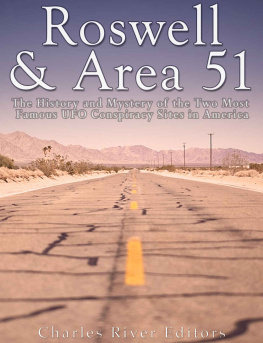Charles River Editors - The KGB and the Stasi: The History of the Eastern Bloc’s Most Infamous Intelligence Agencies
Here you can read online Charles River Editors - The KGB and the Stasi: The History of the Eastern Bloc’s Most Infamous Intelligence Agencies full text of the book (entire story) in english for free. Download pdf and epub, get meaning, cover and reviews about this ebook. year: 2018, publisher: Charles River Editors, genre: Politics. Description of the work, (preface) as well as reviews are available. Best literature library LitArk.com created for fans of good reading and offers a wide selection of genres:
Romance novel
Science fiction
Adventure
Detective
Science
History
Home and family
Prose
Art
Politics
Computer
Non-fiction
Religion
Business
Children
Humor
Choose a favorite category and find really read worthwhile books. Enjoy immersion in the world of imagination, feel the emotions of the characters or learn something new for yourself, make an fascinating discovery.

- Book:The KGB and the Stasi: The History of the Eastern Bloc’s Most Infamous Intelligence Agencies
- Author:
- Publisher:Charles River Editors
- Genre:
- Year:2018
- Rating:5 / 5
- Favourites:Add to favourites
- Your mark:
- 100
- 1
- 2
- 3
- 4
- 5
The KGB and the Stasi: The History of the Eastern Bloc’s Most Infamous Intelligence Agencies: summary, description and annotation
We offer to read an annotation, description, summary or preface (depends on what the author of the book "The KGB and the Stasi: The History of the Eastern Bloc’s Most Infamous Intelligence Agencies" wrote himself). If you haven't found the necessary information about the book — write in the comments, we will try to find it.
The KGB and the Stasi: The History of the Eastern Bloc’s Most Infamous Intelligence Agencies — read online for free the complete book (whole text) full work
Below is the text of the book, divided by pages. System saving the place of the last page read, allows you to conveniently read the book "The KGB and the Stasi: The History of the Eastern Bloc’s Most Infamous Intelligence Agencies" online for free, without having to search again every time where you left off. Put a bookmark, and you can go to the page where you finished reading at any time.
Font size:
Interval:
Bookmark:
By Charles River Editors

The KGBs emblem

Charles River Editors is a boutique digital publishing company, specializing in bringing history back to life with educational and engaging books on a wide range of topics. Keep up to date with our new and free offerings with this 5 second sign up on our weekly mailing list , and visit Our Kindle Author Page to see other recently published Kindle titles.
We make these books for you and always want to know our readers opinions, so we encourage you to leave reviews and look forward to publishing new and exciting titles each week.

The document establishing the KGB
The KGB
[T]he Stasi often used a method which was really diabolic. It was called Zersetzung, and it's described in another guideline. The word is difficult to translate because it means originally "biodegradation". But actually, it's a quite accurate description. The goal was to destroy secretly the self-confidence of people, for example by damaging their reputation, by organizing failures in their work, and by destroying their personal relationships. Considering this, East Germany was a very modern dictatorship. The Stasi didn't try to arrest every dissident. It preferred to paralyze them, and it could do so because it had access to so much personal information and to so many institutions. - Hubertus Knabe, German historian
The KGB is one of the most famous abbreviations of the 20th century, and it has become synonymous with the shadowy and often violent actions of the Soviet Unions secret police and internal security agencies. In fact, it is often used to refer to the Soviet state security agencies throughout its history, from the inception of the inception of the Cheka (Extraordinary Commission) in 1917 to the official elimination of the KGB in 1992. Whether its associated with the Russian Civil Wars excesses, Stalins purges, and even Vladimir Putin, the KGB has long been viewed as the Wests biggest bogeyman during the second half of the 20 th century.
Aside from the KGB, the 20 th centurys most notorious spy agency was the Stasi, which was instrumental in the history of East Germany. In an era of totalitarian countries dominated by repressive state agencies, the Stasi stood out for its size, and the sheer breadth and depth of its surveillance. Films such as Das Leben der Anderen (The Lives of Others) encapsulated post-unification attitudes and conceptions of both life in East Germany and the activities of the Stasi.
Despite its notoriety, the legacy of the Stasi is contested in modern Germany. Former West Germans, and Westerners more generally, closely align the East German state and the Stasi, framing a Stasi State. Those in the former East Germany, however, resent the patronizing attitudes and conflation of the two institutions, preferring to focus on the social elements of the East German state. Uwe Spiekermann, of the German Historical Institute, succinctly sets out the impressions of many when considering East Germany and its culture of surveillance: In retrospect, the Stasi has become a symbol for the GDR [East Germany].
The East German State Security Service, or Staatssicherheitsdienst in German (abbreviated to Stasi) was formed in 1950. It purported to be the states shield and sword and closely monitored much of the population for the next 40 years. Some of the figures are startling. By the end of the 1980s, Stasi files were kept on six million out of 18 million inhabitants. When the Stasi archives were opened in the 1990s, files were discovered that stretched for 178 kilometers. Over the course of East Germanys existence, up to two million people acted as spies, and 90,000 people worked at the Ministry, not to mention the numerous unofficial informers.
East Germany also had a much-feared foreign intelligence arm of its intelligence services, the HV A (German: Hauptverwaltung A or central department), which proved expert at infiltrating West German society and running operations in numerous other countries. But why did the Stasi form, and how did it prove so effective? Answering those questions requires understanding the unique circumstances in which East Germany was formed, as well as politics in Germany at the end of World War II and the start of the Cold War.
The KGB and the Stasi: The History of the Eastern Blocs Most Infamous Intelligence Agencies examines two notorious agencies. Along with pictures depicting important people, places, and events, you will learn about the KGB and Stasi like never before.
Vladimir Lenins plan for a Russian Civil War received a catalyst from a strange place. In September of 1915, Tsar Nicholas II dismissed his generals on the Eastern Front during World War I and took over military command himself. Thus, as the number of battles lost grew, his reputation and popularity among the people fell. By 1917, it was clear that the Russian Army would never be able to sustain further involvement in the war, having already lost almost 8 million soldiers to death, injury and capture. With that, the Russian people began to cry out against the privations of the war. Factory workers staged strikes for higher wages to pay the ever inflating cost of food for their families. At the same time, people in Petrograd rioted in the streets, vandalizing shops and demanding food that the government simply did not have.

Lenin
Had he been wiser, Nicholas might have appealed to the people, or met with the Duma to work out some sort of solution to the shortages. However, he had been raised with the understanding that the main work of a Tsar was to preserve the monarchy for his son. Thus, he decided on the very inopportune moment of late February, 1917 to try to disband the Duma and regain absolute power. When the Duma refused to disband, the High Commander of the army appealed to Nicholas, suggesting that he should abdicate before a full scale revolution broke out. Some suggested that the Tsars cousin, Grand Duke Michael Alexandrovich would make an excellent replacement. He refused, however, and on March 1, Nicholas was forced to leave and was replaced with a Provisional Government which originally consisted of a mishmash of parliamentary figures and members of revolutionary councils that had been elected by workers, soldiers and peasants.
Lenin was still in exile in Zurich when the February Revolution pushed Nicholas II out of power, and he only found out about it on March 15. Understandably thrilled with this turn of events, Lenin began firing off missives to friends and allies in an attempt to harness the revolutionary energy and direct it toward an international class conflict, writing in one letter, "Spread out! Rouse new sections! Awaken fresh initiative, form new organisations in every stratum and prove to them that peace can come only with the armed Soviet of Workers' Deputies in power." At the same time, he and other members of the Provisional Government went about trying to secure his safe passage back to Russia, and eventually a Swiss colleague with contacts in the German Foreign Ministry was able to get Lenin a train ride into Russia. While that seems odd at first glance, it is apparent the German Foreign Ministry hoped that Lenins agitation back in Russia would sufficiently distract the Russian Army and lead to their surrender to Germany or their quitting of the war.
Font size:
Interval:
Bookmark:
Similar books «The KGB and the Stasi: The History of the Eastern Bloc’s Most Infamous Intelligence Agencies»
Look at similar books to The KGB and the Stasi: The History of the Eastern Bloc’s Most Infamous Intelligence Agencies. We have selected literature similar in name and meaning in the hope of providing readers with more options to find new, interesting, not yet read works.
Discussion, reviews of the book The KGB and the Stasi: The History of the Eastern Bloc’s Most Infamous Intelligence Agencies and just readers' own opinions. Leave your comments, write what you think about the work, its meaning or the main characters. Specify what exactly you liked and what you didn't like, and why you think so.
















